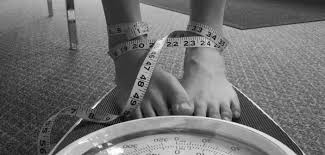An eating disorder is more than just a diet that has gone too far. A true eating disorder is destructive to both physical and emotional health. But, because it often develops slowly over time, it can be difficult to tell the difference between normal dieting and chronic, unhealthy behavior. If you realize that you or someone you love has an eating disorder, here’s how therapy can help.
Become More Self-Aware
It can be difficult to understand why we do what we do—with or without an eating disorder. We create habits and get stuck in them without even realizing it. That’s why keeping a food diary is often one of the first steps you may discuss in therapy.
When you keep track of the times and situations that trigger your eating disorder, it can lead to huge breakthroughs. Once you know when it happens, you can start discovering the reasons why.
Reshape Your Thought Patterns
Eating disorders often come paired with their destructive cousin, anxiety. You may ruminate or obsess over the same thoughts, which are often negative messages about food or your body. However, you possibly are not aware that you’re having these thoughts and instead are aware of feeling anxious.
In a therapy environment, you learn how to first observe these thoughts, as well as the negative impact they are having on you. Once you notice them, you can focus on stopping them and replacing them with healthier self-talk.
Create Coping Mechanisms
You may have trouble understanding or controlling your emotions, and stress or highly emotional situations may be triggering the behaviors of your eating disorder. Exploring your emotions and major life stressors with a therapist can help. When you feel safe enough to evaluate your triggers, you can create new coping mechanisms for these stressful situations.
Restore Accurate Body Image
Many people in our culture have an inaccurate body image. Thanks to powerful message senders like Instagram and Photoshop, the images we see of the “ideal body” often aren’t even real. When you have an eating disorder, you likely have some degree of body dysmorphia. This means that you don’t have an accurate sense of what your body really looks like, and you are most likely holding yourself to a standard that does not exist. In therapy, you can get a more realistic sense of your body and determine healthier goals for how you would like it to look.
Boost Your Self-Esteem
Chances are good that you may have some negative opinions about yourself that go along with your body image. Eating disorders can make you feel out of control, which can also lead to feelings of shame and low self-worth. Many people with eating disorders also have underlying traumas that need to be healed, such as a history of childhood abuse or sexual assault. When a child grows up amidst chaos, rigidity, or some degree of both, they often develop the belief that if they can just control everything around them, they will be safe. Sadly, trying to control things is not a solution, and often makes things worse. Much worse.
Working through these past traumas can help you develop better self-esteem. You can also boost your self-esteem by learning to focus on your positive achievements that have nothing to do with your weight. Focusing on the things you like about yourself is a habit that requires practice. But the good news is that this practice will have a huge payoff. You’ll feel better about yourself and will be less likely to feel like your life is out of control.
Preventing Relapse
Eating disorders are illnesses that can be managed with dedicated effort. You can be and stay in recovery with enough knowledge, awareness, understanding, and therapeutic processing. Like many other illnesses, relapse is always possible. Therapy with an experienced specialist can help you develop strategies to prevent future relapse. Working with a counselor can help you discover why a relapse may have occurred so you can understand your relationship with food and your body even better, especially under stress. Therapy can also help you learn how to go from being self-critical to having compassion for yourself.
Recovery from an eating disorder is a process. You deserve a healthy future, free from disordered eating. Therapy can help.
Take the first step…
If you are ready to address your food and body image issues and how they may be affecting your life, I would like to help. Please contact me via phone or email so we can discuss how we might work together to achieve your therapeutic goals as quickly and effectively as possible.
I look forward to hearing from you.
Linda K. Laffey, MFT


